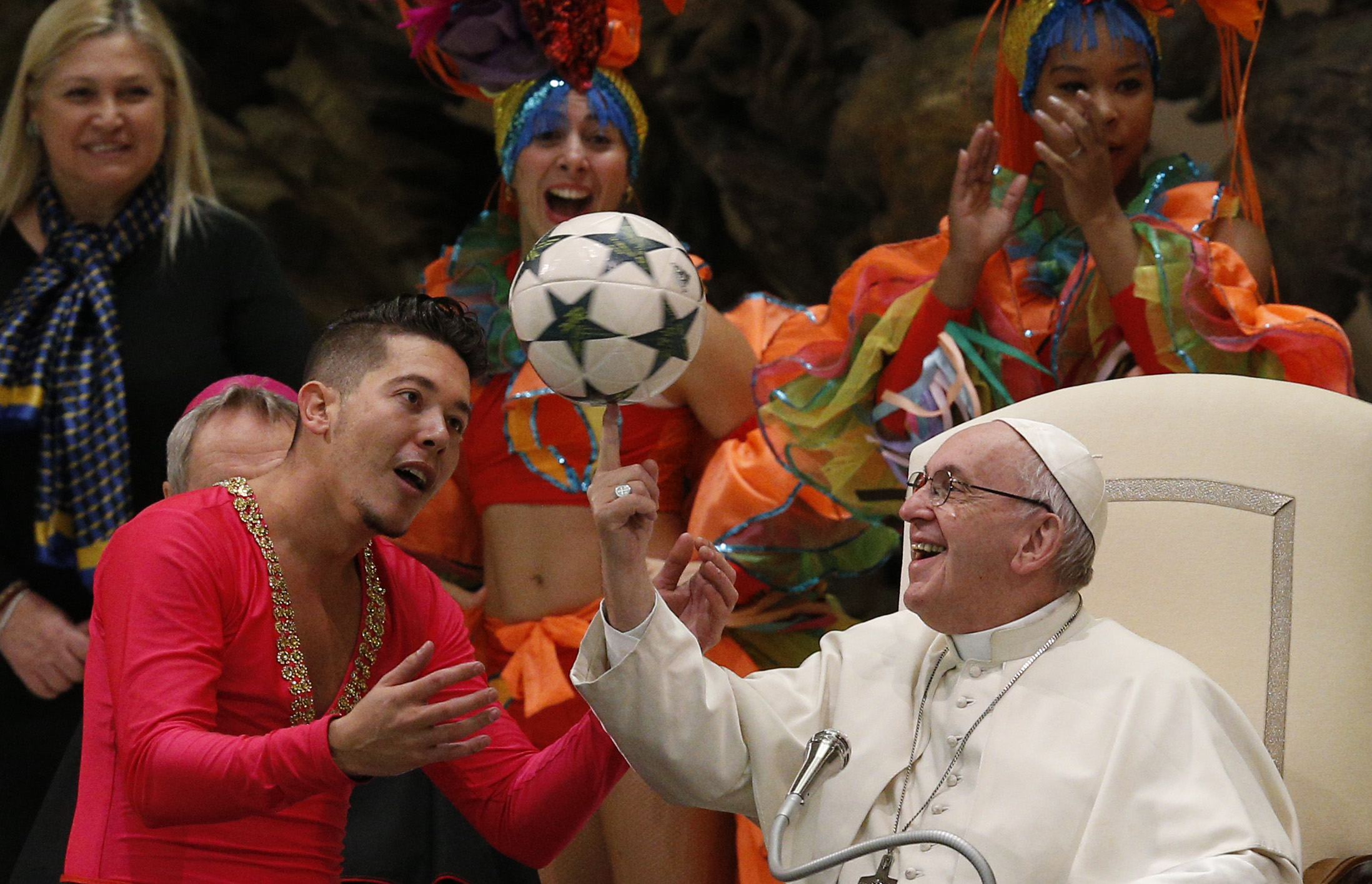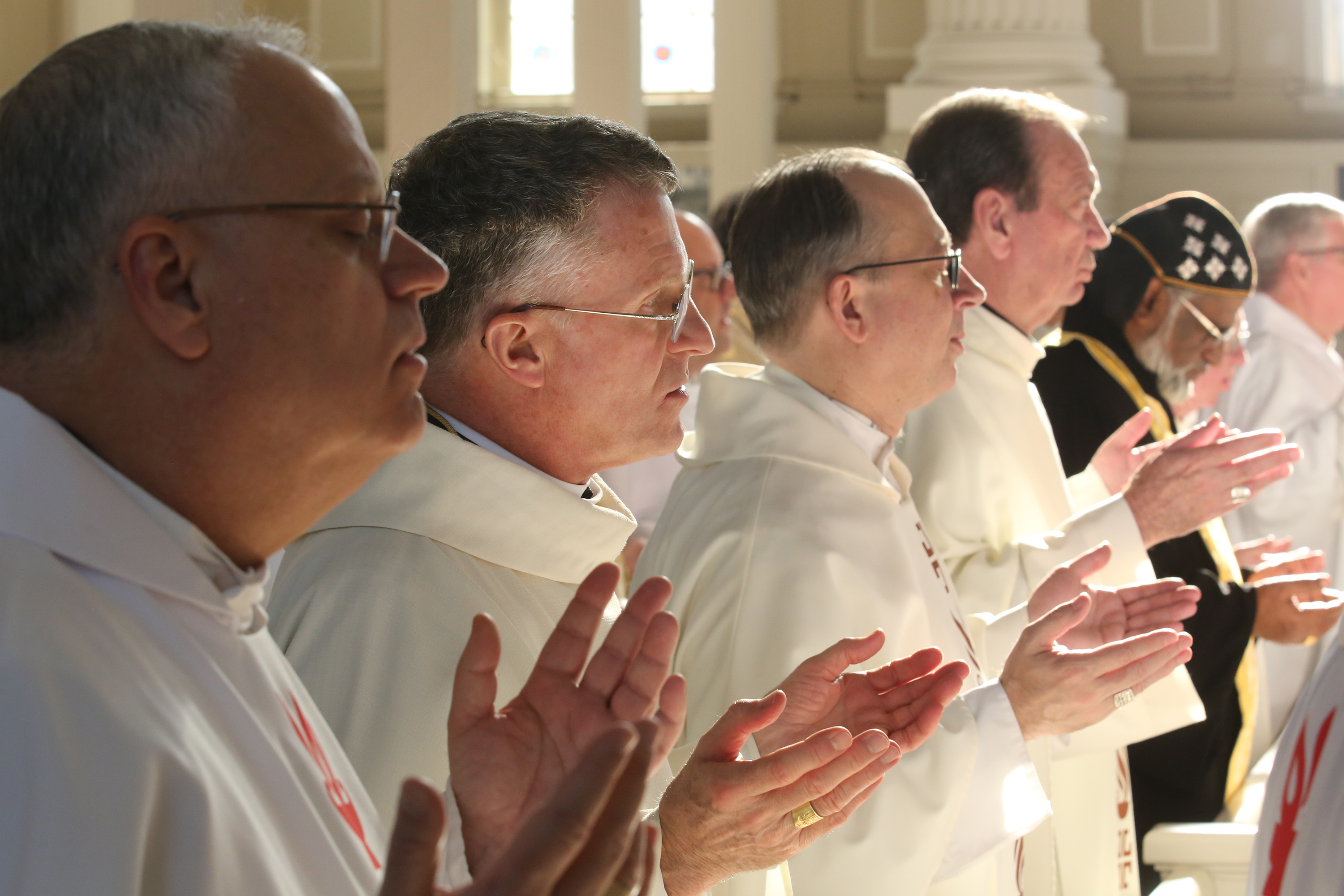Pope Francis has ordered the United States bishops to stop acting like business managers and end their internal divisions if they wish to regain credibility following the clerical sexual abuse crisis.
The Pope made his stinging spiritual diagnosis in a letter sent to the US church leadership as they gathered on a papally-mandated retreat at the Mundelein Seminary near Chicago.
But his eight-page letter also provides an insight into Francis’ thinking on the crisis ahead of the crucial 21-24 February Vatican summit on abuse, emphasising that he wants new child protection procedures to be combined with discernment and a change of mentality.
“Loss of credibility calls for a specific approach, since it cannot be regained by issuing stern decrees or by simply creating new committees or improving flow charts, as if we were in charge of a department of human resources,” the Pope writes.
“That kind of vision ends up reducing the mission of the bishop and that of the Church to a mere administrative or organisational function in the ‘evangelisation business.’”
While the Pope emphasises that protocols and a “new approach to management” is necessary, it must come alongside a changed mindset which places the logic of the gospel at the centre.
The goal, the 82-year-old Jesuit pontiff makes clear in a 3,600-word letter, is for a missionary, outward-looking Church which has undergone a pastoral conversion.
This also means a united group of bishops which, as a result of scandals, has become damaged by “division and dispersion”.
Over the past two decades, the US Church has been grappling with the clergy abuse crisis which erupted onto global media attention in 2002 after scandals were revealed in the Archdiocese of Boston. But the problem of abuse and its cover-up were first reported in the Catholic and local press in the 1980s.
During the summer of 2018 the crisis once again reared its head after a credible allegation of sexually molesting a minor was made against ex-Cardinal Theodore McCarrick, the former Archbishop of Washington. This came as it emerged that McCarrick was promoted to the highest echelons of the US hierarchy despite complaints of his sexual harassment of seminarians.
In his letter, Francis gives a bruising verdict on the impact of the abuse scandals.
“The Church’s credibility has been seriously undercut and diminished by these sins and crimes, but even more by the efforts made to deny or conceal them,” the Pope writes.
“This has led to a growing sense of uncertainty, distrust, and vulnerability among the faithful. As we know, the mentality that would cover things up, far from helping to resolve conflicts, enabled them to fester and cause even greater harm to the network of relationships that today we are called to heal and restore.”
The repercussions, Francis explains, have “deeply affected” the communion of bishops, and requires a new “ecclesial season” where discernment trumps administration.
“This approach demands of us the decision to abandon a modus operandi of disparaging, discrediting, playing the victim or the scold in our relationships, and instead to make room for the gentle breeze that the Gospel alone can offer,” Francis says.
“Amid the upset and confusion experienced by our communities, our primary duty is to foster a shared spirit of discernment, rather than to seek the relative calm resulting from compromise or from a democratic vote where some emerge as ‘winners’ and others not. No!”
The Pope first suggested the bishops' retreat during 13 September crisis talks in the Vatican with Cardinal Daniel DiNardo, President of the US Bishops’ Conference and Cardinal Sean O’Malley, the Archbishop of Boston and president of the papal commission for protection of minors.
Church sources have said the Pope wanted the retreat to take place instead of the US bishops November plenary meeting in Baltimore, which was marked by disagreements over the best response to the abuse crisis. It also saw the Vatican step into stop the bishops voting on a new code of conduct and a lay-led commission to receive complaints against them.
While at the time Cardinal DiNardo said the Holy See had insisted the vote be delayed, a letter from Cardinal Marc Ouellet, the Prefect of the Congregation for Bishops, revealed the Vatican had been given little notice to assess proposals that would impact on the Church’s universal law.
“I suggested that together you make a retreat, a time of seclusion, prayer and discernment, as a necessary step toward responding in the spirit of the Gospel to the crisis of credibility that you are experiencing as a Church,” the Pope said of the 13 September meeting.
“We see this in the Gospel: at critical moments in his mission, the Lord withdrew and spent the whole night in prayer, inviting his disciples to do the same. We know that, given the seriousness of the situation, no response or approach seems adequate; nonetheless, we as pastors must have the ability, and above all the wisdom, to speak a word born of heartfelt, prayerful and collective listening to the Word of God and to the pain of our people.”
The clerical sexual abuse crisis is proving to be the toughest test of Francis’ pontificate. Just before Christmas, organisers of the February summit have told bishops attending the event that they must take action or risk losing credibility. The papal strategy for that meeting is now becoming clearer: conversion, discernment and then new procedures. None of this will be possible, however, if the bishops become consumed by internal bickering and politicking.
“The loss of credibility also raises painful questions about the way we relate to one another. Clearly, a living fabric has come undone, and we, like weavers, are called to repair it,” the Pope writes to the US bishops.
“This involves our ability, or inability, as a community to forge bonds and create spaces that are healthy, mature and respectful of the integrity and privacy of each person.”
He adds: “It involves our ability to bring people together and to get them enthused and confident about a broad, shared project that is at once unassuming, solid, sober and transparent. This requires not only a new approach to management, but also a change in our mindset (metanoia), our way of praying, our handling of power and money, our exercise of authority and our way of relating to one another and to the world around us.”



 Loading ...
Loading ...